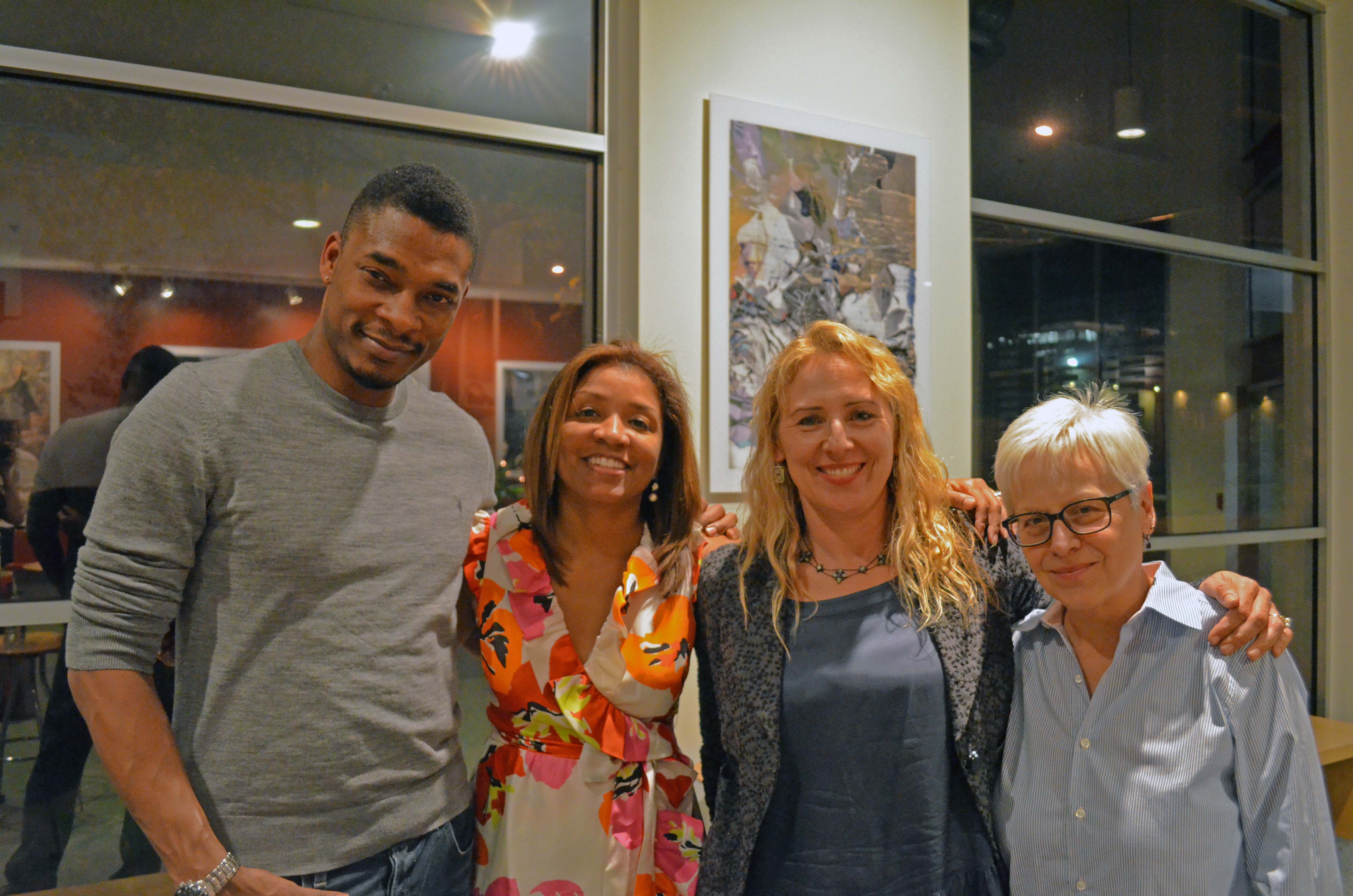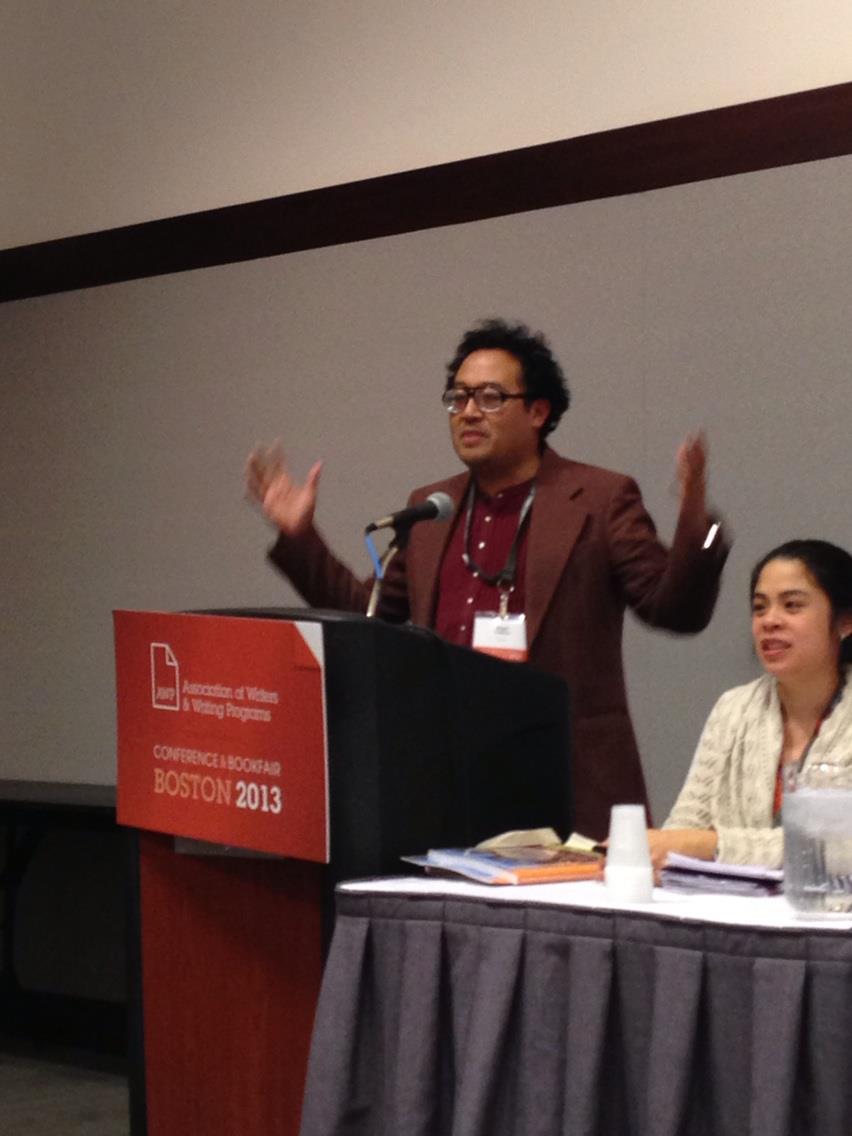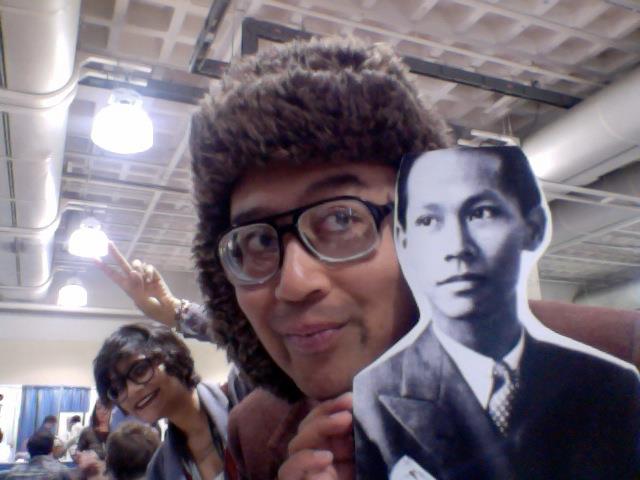Terrance Hayes Is a Camera
In March, P&W-supported poet Terrance Hayes read with Red Hen Press at the Boston Court Performing Arts Center in Pasadena, California. P&W staff member Cheryl Klein writes about the evening. Given that many reading series struggle to draw audiences, it’s somewhat astonishing to consider that Red Hen Press maintains five series—one in New York and four in the Los Angeles area, where the eighteen-year-old press is based. And judging by a mid-March reading by poet Terrance Hayes and several Red Hen authors, sagging attendance is not an issue.
Given that many reading series struggle to draw audiences, it’s somewhat astonishing to consider that Red Hen Press maintains five series—one in New York and four in the Los Angeles area, where the eighteen-year-old press is based. And judging by a mid-March reading by poet Terrance Hayes and several Red Hen authors, sagging attendance is not an issue.
With the sun setting pinkly, poetry fans filed into the Boston Court Performing Arts Center, a large brick theater with a digital marquee, tucked in a leafy residential street in Pasadena, California. A Boston Court representative cheerily informed the audience that, behind the thick black curtain, sets were being built for the center’s next production, about America’s first serial killers. On that note, he turned the mic over to Red Hen Managing Editor Kate Gale.
Gale introduced each of the night’s four poets by reading a few of her favorite lines from their work. Katharine Coles read first, from The Earth is Not Flat, a Red Hen collection comprised of poems she wrote while traveling in Antarctica. The poems reflected her longtime fascination with the intersection of science and literature.
Perhaps it’s not surprising that the travel poems of Alaska’s Peggy Shumaker, who read from her book Toucan Nest later that evening, reveal an obsession with warmer territory. Specifically, she recounted in lyrical form a trip she’d taken to Costa Rica with fellow Red Hen author and new L.A. poet laureate Eloise Klein Healy, whose partner leads eco-tours to tropical environments. Shumaker’s poem about baby howler monkeys reveled in the kind of parent-child push-and-pull that can be found in all climates.
Dan Vera, inaugural winner of the Letras Latinas/Red Hen Poetry Prize, read striking and funny poems about growing up Cuban in Arizona. In Cuban Spanish, he told the audience, “menudo” is slang for change, the kind you receive from a cashier. In Mexican Spanish, it refers to tripe soup. You can imagine how things unfolded when his father demanded that the owner of a Mexican restaurant put five dollars worth of menudo in his cupped hand.
The evening’s featured reader was Terrance Hayes, who appeared on stage in a gray sweater and a watch on each wrist—apparently he wasn’t going to be one of those features to prattle on. And in fact, he only read two poems—though they were both somewhat epic in nature, folding in flashes of American history, riffing about race, and punning slyly.
The first, “Self Portrait as the Mind of a Camera,” was based on the photographs of Charles Harris, who documented life in the African-American neighborhoods of his native Pittsburgh. Hayes contemplated the various meanings of “black and white” as they pertain to photography and race: “To be black and white is to behold the existential and believe that the colors are conspiring against you.”
His second poem, “Wigphrastic,” was a critique of Norman Mailer’s essay “The White Negro,” which played with the idea of the “wigger” (a word Hayes said he dislikes, though he’s up for combining “white” and “black” to get “wack”) by naming the many uses for wigs. Protection, façade—“Isis wigs, Cleopatra wigs, Big Booty Judy wigs.” The idea of playing with artifice was clearly as fascinating to Hayes as any icy or tropical landscape.
From left: Terrance Hayes, Monica Copeland, Kate Gale, and Eloise Klein Healy. Credit: Gabriela Morales.
Major support for Readings/Workshops in California is provided by the James Irvine Foundation. Additional support comes from the Friends of Poets & Writers.






 light to Madison will be on time. I am scheduled to perform at the Midwest Filipino Students Association. I am to give a workshop and a performance in the evening. I bring my bags to Friday morning's Kundiman panel. Myung Mi Kim, Paisley Rekdal, and I read poems and talk about pedagogy.
light to Madison will be on time. I am scheduled to perform at the Midwest Filipino Students Association. I am to give a workshop and a performance in the evening. I bring my bags to Friday morning's Kundiman panel. Myung Mi Kim, Paisley Rekdal, and I read poems and talk about pedagogy.